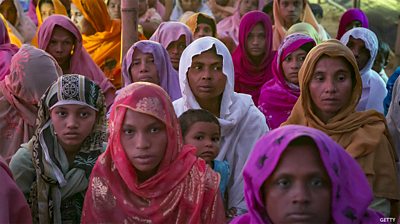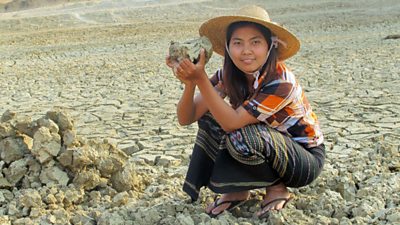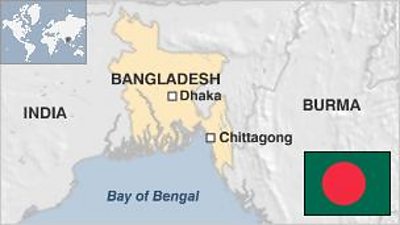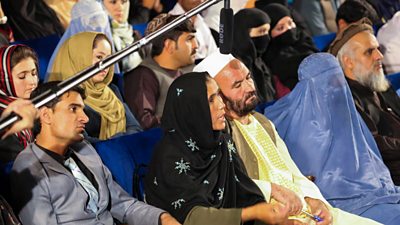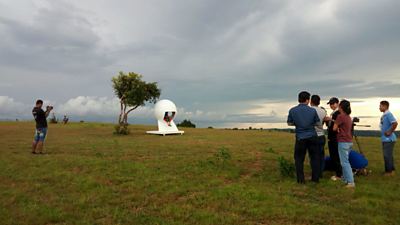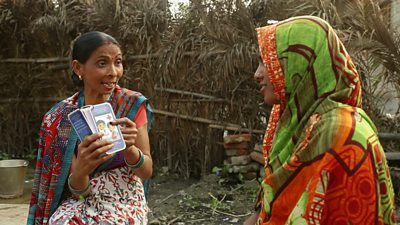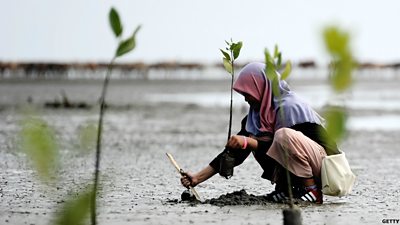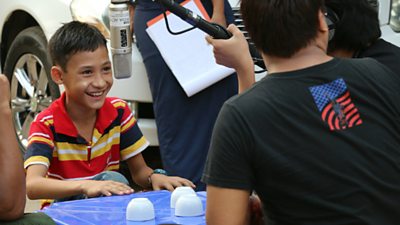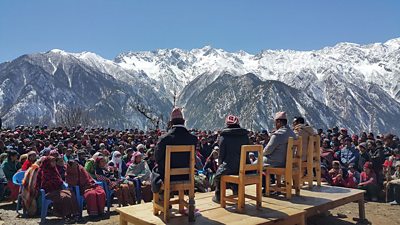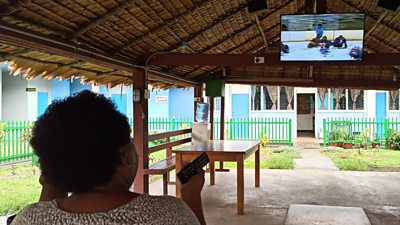- Our office: Dhaka, and Cox’s Bazar
- Our areas of focus: Refugee response, conflict mitigation, climate change and resilience, disaster resilience and humanitarian coordination, maternal and child health, sexual and reproductive health and rights, disability inclusion, media development
- Our partners: Australian Department of Foreign Affairs and Trade, US Government - Bureau of Population, Refugee and Migration; UK Foreign, Commonwealth and Development Office, European Civil Protection and Humanitarian Aid Operations (ECHO), H&M Foundation, International Rescue Committee (IRC), UNFPA, UNHCR, Unicef, UN Women, USAID, World Vision.
About our work
Our Bangladesh office runs diverse and wide-reaching projects spanning long-term development and critical humanitarian assistance.
We responded quickly to the Rohingya refugee crisis, and currently lead the Common Service for Community Engagement and Accountability – an innovative model for better informing and coordinating humanitarian efforts to support Rohingya and host communities. With our partners, we’re providing trusted information, dispelling harmful rumours, and providing advice, tools and training to over 50 agencies to help them understand the changing needs and perceptions of Rohingya people.
We work in partnership with the International Rescue Committee and funded by US Bureau of Population, Refugee and Immigration to ensure integrated approaches to delivering health, nutrition, livelihood and protection services to both the Rohingya community and the host communities. With UNHCR and Terre Des Hommes, we deliver multimedia content and support to religious leaders, Rohingya people and volunteers, to improve community engagement and promote community-led approaches.
We are also leading YouthRISE, a four-year consortium programme funded by USAID supporting the host communities in Cox’s Bazar to reduce conflict and violence, including gender-based violence, and promote peaceful conflict resolution.
Bangladesh is one of three countries where we’re delivering our flagship media development initiative, Protecting Independent Media for Effective Development (PRIMED). We aim to support individual media outlets to generate professional, ethical and informative content to understand and engage audiences, and to develop effective and sustainable business models.
Our previous projects have included tackling gender inequality and economic empowerment through The Future of Work, working with women in garment factories to encourage them to overcome traditional barriers to pursue higher-level positions - smashing gender stereotypes, building skills and earning more to support their families.
Through our AGAMI (Accelerated Gender-Equitable Adolescents, Maternal and Child Intervention) project, we developed a mobile app to train community health workers in sexual and reproductive health issues. And our Hello, I Am multimedia programme, across radio, social media, public service announcements and community screenings, aimed to reduce rates of child marriage, school drop-out and teenage pregnancy. Our research shows fathers and boys have a better understanding of the value of girls’ education after engaging with our work.
Latest news from Bangladesh
Our projects in Bangladesh
-
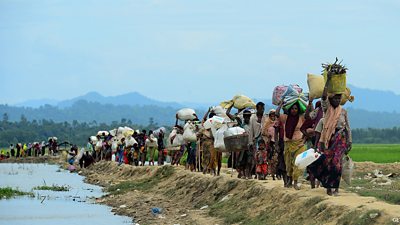
Responding to the Rohingya emergency in Bangladesh
We’re supporting local radio partners to produce a dedicated Lifeline radio programme for Rohingya people and host communities in living in Cox’s Bazar. -
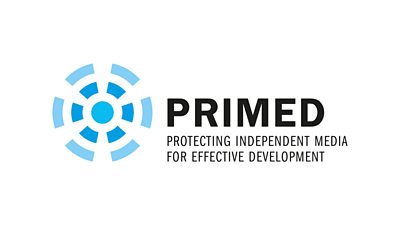
Protecting independent media for effective development
We are working with media support organisations and local partners to find out how best to support public interest media in Sierra Leone, Ethiopia and Bangladesh. -
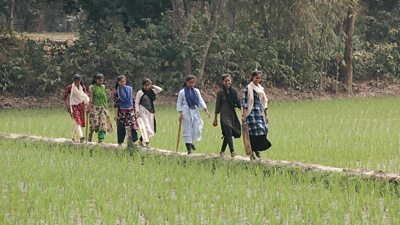
Hello I Am - challenging child marriage in Bangladesh
Watch our films with Rutgers showing how girls are breaking down barriers, in school and on the cricket pitch. -
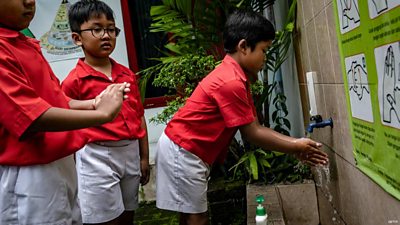
Communication to counter the COVID-19 ‘info-demic’
����ý Media Action launches new project in Asia to tackle the spread of mis- and dis-information around COVID-19 (coronavirus) which is as harmful as the disease itself. -
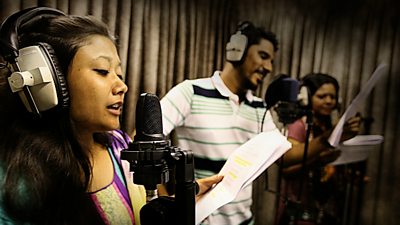
Generation Breakthrough: Using radio to encourage healthy relationships in Bangladesh
Engaging a young people with a range of social and health related topics through a weekly radio show radio Dosh Unisher Mor (Crossroads at 10 to 19). -

Preparing for and responding to disasters in Bangladesh
����ý Media Action and its partners are helping the public prepare better for future disasters as well as providing timely, accurate and useful information in times of crisis. -
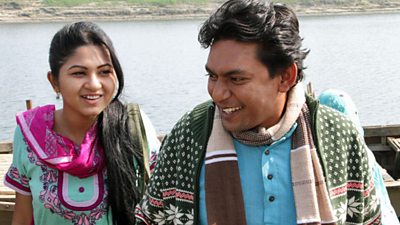
TV drama on maternal and newborn health in Bangladesh
Through a major TV drama series, a radio magazine show, public service announcements and communication skills training for community health workers. -

Debate programme Sanglap
Sanglap (Dialogue), was a political discussion TV show enabling Bangladeshis from all walks of life to question their leaders on the issues that mattered to them.
Our insight and impact
Use our research library-
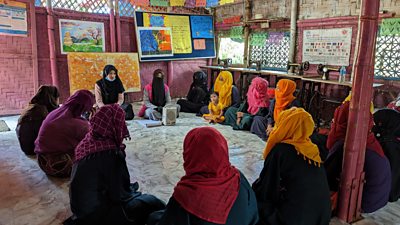
Using drama to tackle mental health in the Rohingya camps
This briefing summarises the findings from our evaluation of the drama series Aa’rar Kissa and provides recommendations for future programming on mental health. -
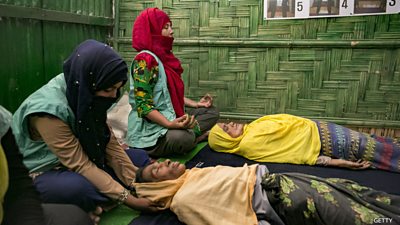
Understanding mental health in the Rohingya community
Research conducted by ����ý Media Action Bangladesh explored people’s perception of mental health, related social stigma, service-seeking behaviour and motivation and barriers to accessing mental health services within both host and Rohingya communities. Findings informed our audio drama Aa’rar Kissa (Our Story) and a follow up study sought to understand its impact on the knowledge and attitudes of the Rohingya community to issues around mental health. -
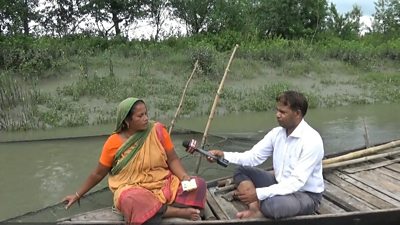
Case study: Leading efforts to adapt to climate change – locally
This briefing summarises follow-on research conducted in 2023 by ����ý Media Action to understand how communities are adapting to climate related problems and the benefits, barriers, and drivers of these adaptations. The study focused on locally-led adaptation (LLA) techniques. -
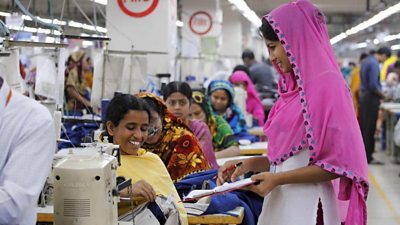
The impact of gender norms on women's progression in the garment industry
Behind every female garment worker, there is a ‘supportive husband’, but what does this support really look like? We conducted a study to explore the perceptions and attitudes towards gender roles in the textile industry in Bangladesh. -

Helping media partners better understand and engage their audiences
This summary looks at findings from ongoing research, under the PRIMED project, which helps media partners build a picture of audience profiles and needs, equipping them with insight to improve output. -

Insights from Cox's Bazar
Our 'Common Service' consortium, with Translators without Borders and Ground Truth Solutions, provides a range of tools and services for Rohingya people, local community leaders and humanitarian responders. Learn more about our work, our insight and our impact on this page. -
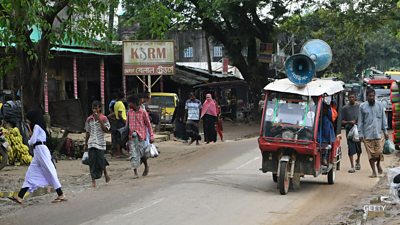
Research report: What role has the 'common service' played in helping effective communication during the COVID-19 pandemic?
As common service resources and attention have been diverted to focus on COVID-19, a key focus of the evaluation in 2021 was to understand how the project has been able to support agencies and communities through the pandemic. -

Research report: What role does having a dedicated ‘common service’ make to community engagement and accountability?
This report uses five case studies to explore the impact the Common Service project is having on humanitarian organisations' work with Rohingya communities in Bangladesh. -
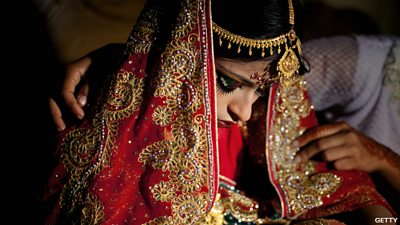
Research summary: The role of community screenings in changing attitudes to child marriage in Bangladesh
����ý Media Action conducted mixed methods research to understand the contribution edutainment screenings can make to influencing knowledge, attitudes and intention to practice around child marriage. -
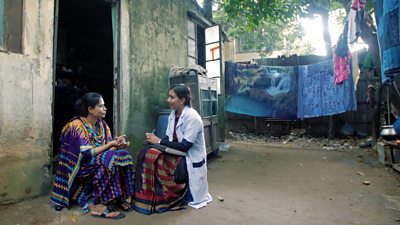
Research summary: Can an m-Health app help improve community health workers’ communication skills in Bangladesh?
A summary outlining results from developing a mobile app for community health workers (CHWs) to communicate better with their clients in urban slums. -
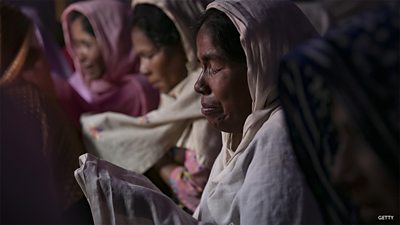
Research briefing: Violence against women within the Rohingya refugee community
To inform the development of a new radio drama for Rohingya refugees in Cox’s Bazar, we carried out a small-scale qualitative research study that sought to understand more about Rohingya men and womens’ understanding and attitudes towards child marriage, intimate partner violence, sexual exploitation and abuse. -
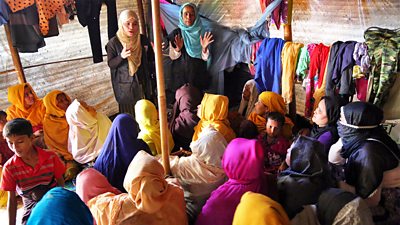
Research report: How effective is communication in the Rohingya refugee response?
This paper evaluates our project supporting humanitarian and media agencies and how they communicate and engage with Rohingya people living in camps in Cox's Bazar in Bangladesh. -

Research summary: Exploring barriers to accessing sexual and reproductive health (SRH) services in Dhaka’s urban slums
����ý Media Action conducted research in Dhaka's urban slums to explore the barriers preventing people from accessing sexual and reproductive health (SRH) services, and the challenges facing health workers in communicating with their clients on SRH issues. -

Research briefing: Can a health drama and discussion show affect the drivers of behaviour change?
This briefing explores the extent to which drama and discussion shows in Bangladesh can drive behaviour change around child and maternal health. -
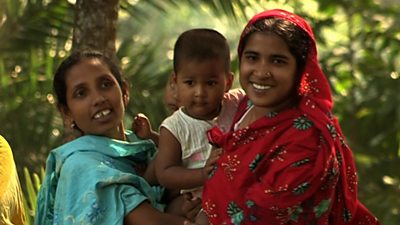
Research summary: How drama and factual programmes are helping improve maternal and child nutrition in Bangladesh
Our content was able to reinforce knowledge, stimulate positive discussion and improve motivation to take-up recommended practices related to maternal and child nutrition in rural Bangladesh. -
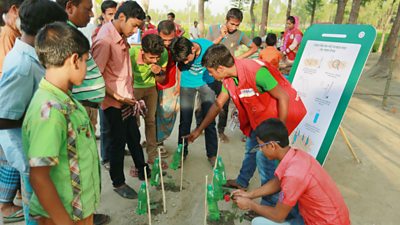
Research summary: What are the barriers to community involvement in local level disaster preparedness measures in Bangladesh?
An investigation into what prevents communities from engaging in local level disaster preparedness measures in Bangladesh. -
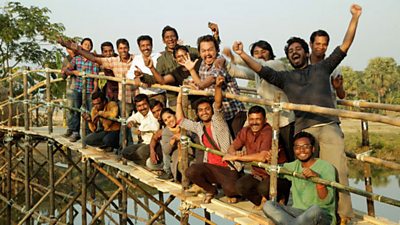
Research summary: Reality TV for Resilience
Research summary exploring the use of reality TV to encourage communities in Bangladesh to work together and helps them to adopt new resilience-enhancing skills. -
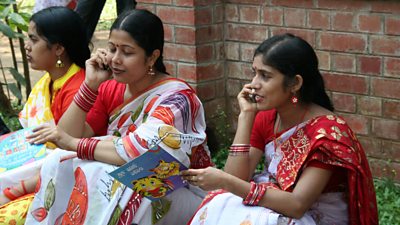
Country case study: Bangladesh
This report is one of a series of case studies examining support to, and development of, the media in countries where media freedoms and rights to information and communication are restricted.
Past projects and resources
-

Millions of Bangladeshis learn English with ����ý Janala
A major multiplatform educational project aimed to raise the English language skills of 25 million Bangladeshis.
